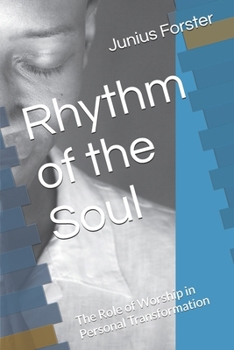Rhythm of the Soul: The Role of Worship in Personal Transformation
Worship, Spirit, and Transformation
1. Essence of Worship
Worship is more than ritual-it's a deep, personal and communal expression of reverence and connection to the divine. It includes attitudes and intentions as much as actions. While traditionally associated with religion, worship transcends specific faiths, offering people of all beliefs a means to grow spiritually and morally.
2. Christian and Broader Contexts
In Christianity, worship involves communal gatherings, scripture, music, and prayer. However, worship across cultures emphasizes inner peace, ethical living, and community belonging, highlighting its universal role in human development and transformation.
3. Personal and Communal Transformation
Worship fosters introspection, encouraging individuals to confront flaws, adopt compassionate values, and align actions with beliefs. When done collectively, worship builds supportive communities grounded in shared values and vulnerability, promoting unity and mutual growth.
4. Historical Evolution of Worship
Historically, worship was integral to daily life in ancient civilizations, serving as both spiritual practice and community-building. Christianity evolved from private to communal worship, particularly through liturgy. The Reformation democratized worship, making it personal and accessible. Today, worship continues to adapt culturally and technologically, connecting people globally and reinforcing its role in transformation.
5. Psychological Impact of Worship
Worship positively impacts mental health, fostering belonging, reducing stress, and encouraging mindfulness. Its emotional and introspective aspects support personal growth, empathy, and resilience. Collective worship nurtures shared values and inspires service, justice, and emotional support within communities.
6. Nature of the Human Spirit
The human spirit embodies resilience, creativity, and a quest for meaning. Worship enables self-reflection, character development, and exploration of life's deeper questions. Through worship, individuals cultivate empathy, humility, and moral clarity, while leaders help guide these transformative journeys.
7. Spirit-Worship Connection
Worship aligns the human spirit with higher purpose, promoting introspection and authentic living. Communal worship strengthens connections to both the divine and others, fostering hope, compassion, and a shared commitment to growth. It reinforces spiritual values that shape a person's identity and everyday actions.
8. Cultural Diversity in Worship
Spiritual expression varies by culture, with worship practices reflecting distinct beliefs, customs, and histories. This diversity underscores worship's universal appeal and its ability to bridge cultural divides by fostering understanding and shared human longing for connection and purpose.
Conclusion
Worship is a transformative force that nurtures a right spirit in both individuals and communities. Across history, cultures, and faiths, it remains a vital practice for fostering self-awareness, ethical living, and communal harmony. Embracing its diverse expressions invites greater dialogue, understanding, and shared human flourishing





